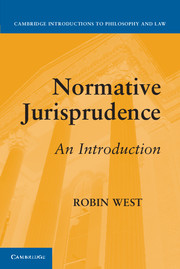3 - Critical Legal Studies – The Missing Years
Published online by Cambridge University Press: 05 June 2012
Summary
The Anglo-American critical legal studies (CLS) movement came to maturity in the late 1970s, motivated, in part, from a sense of dissatisfaction with the state of doctrinal legal scholarship. Legal scholarship, the critical scholars argued, had become deadeningly, deeply conservative, and not in the ordinary sense. That is, it was not conservative because of a contested but defensible view that law-as-it-is is worthy of conservation, or even that law by definition is simply something that must be preserved and defended against all comers. Rather, legal scholarship had become unduly conservative – describing law in such a way as to render it resistant to change, reform, or criticism – for a host of transparently indefensible reasons: a lack of moral and political imagination among legal academics, a felt lack of responsibility for the moral or political consequences of existing law, a complacency bordering on complicity with law's injustices, an unwillingness to do the work or take the risks of arguing for change, more simply, a lazy satisfaction with the status quo, or at best a false belief in the necessity of things staying more or less as they are, with only modest changes in the doctrinal margins up for grabs, as it were. With the possible exception of the American realists of the 1920s and 1930s, there has never before or since been an American academic legal movement so clearly, explicitly, and unapologetically driven by a critical, reformist, and for the most part genuinely radical and left-wing political impulse. The central point of the critical legal studies movement of the 1970s through the mid-1980s was to make the case for fundamental legal change: first, for its possibility, and second, for its moral necessity. The doctrinal law taught in American law schools, the critics claimed, was a substantial hindrance to that change. The attitude and methods surrounding it, however, were even greater obstacles. Law – particularly common law and constitutional law – is simply neither as necessary nor as justified as believed and taught by the mainstream of legal thought, doctrine, and pedagogy, or so the critics argued.
- Type
- Chapter
- Information
- Normative JurisprudenceAn Introduction, pp. 107 - 176Publisher: Cambridge University PressPrint publication year: 2011

